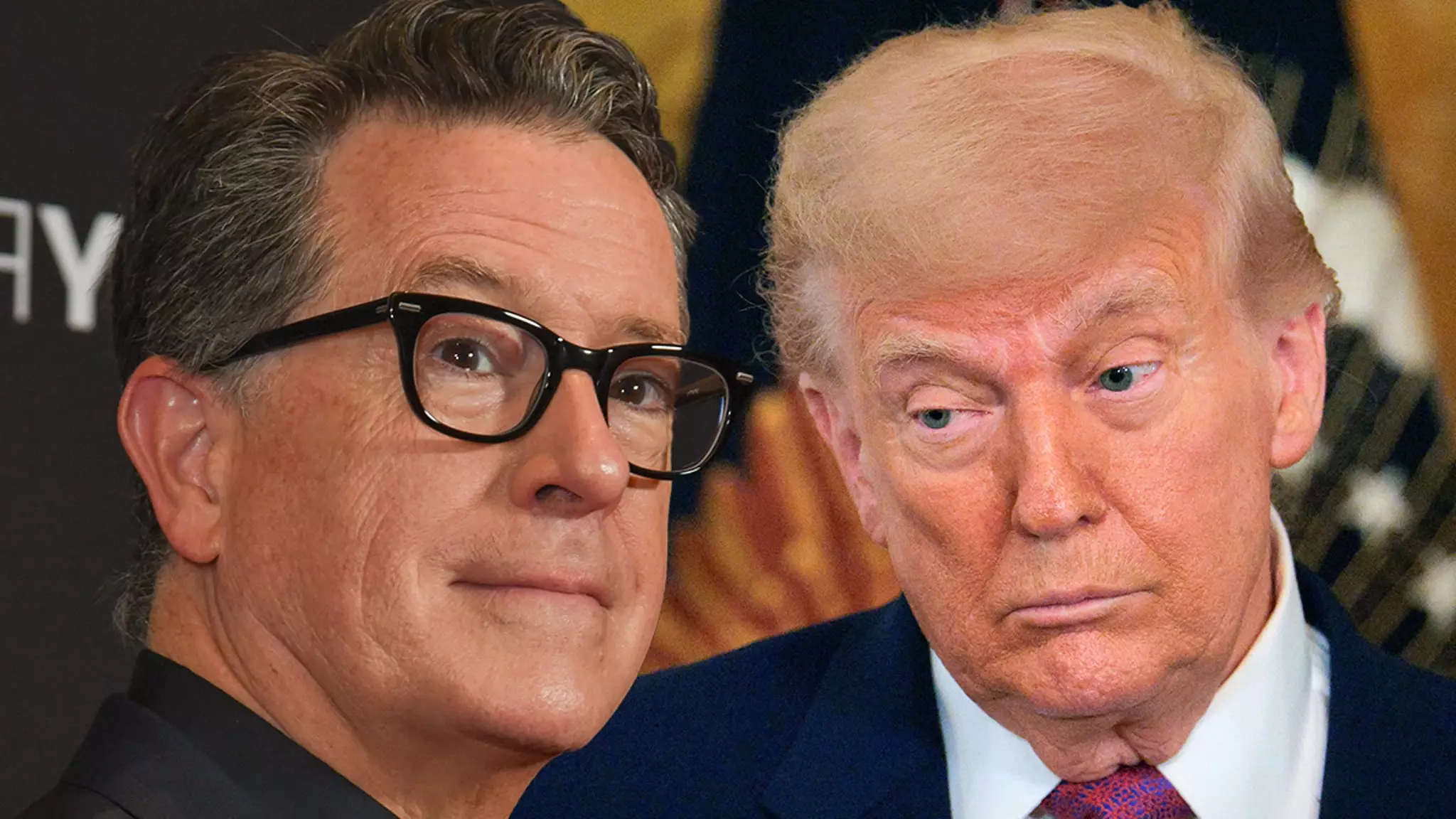In a time when political and corporate pressures often tame voices of dissent, Stephen Colbert’s recent passionate tirade stands out as a daring act of defiance. His raw language and unabashed criticism of Donald Trump represent more than just a fiery monologue; they symbolize a hunger for authentic discourse in an era riddled with compromise and self-censorship. Colbert’s decision to abandon any sense of politeness underscores a philosophical stance: that true integrity demands speaking truth to power, regardless of consequence.
By openly cursing Trump and declaring his “gloves are off,” Colbert embraces a radical honesty that many in mainstream media shy away from. This isn’t just an emotional outburst but a calculated stance against the prevailing culture of fear and self-policing. It suggests he recognizes that genuine change can only occur when figures of influence refuse to remain silent—especially when facing a figure as divisive and vengeful as Trump. Colbert’s blunt words, “Go f*** yourself,” serve as a rallying cry for those who wish to see mainstream outlets shed their superficial veneer, confronting the injustices and absurdities of modern politics with unfiltered candor.
Media as a Battleground: Politics, Corporate Power, and Cultural Resistance
The controversy surrounding “The Late Show”’s impending end highlights deeper systemic issues within the entertainment industry and its intertwined relationship with corporate interests. Colbert’s critique of CBS’s parent company, Paramount Global, over their settlement with Trump exposes a troubling tendency: prioritizing financial expediency over journalistic integrity. Describing the $16 million hush money as an “extortion fee” reveals his skepticism toward the influence of money and power in shaping the media narrative.
This candid attack hints at a broader crisis—media institutions reluctant to challenge powerful figures or narratives that threaten their bottom line. Colbert’s declaration that the cancellation is motivated more by political fear than financial necessity signals a declining tolerance for independent, uncompromising journalism. His words serve as a wake-up call: when media organizations prioritize appeasing political figures or corporate interests over truth, the public suffers a severe erosion of trust and accountability.
Moreover, Colbert’s critique extends beyond CBS to encompass the entire political climate fostered by Trump’s reign. He directly links the show’s possible demise to the chilling effect created by a climate of fear and compliance, illustrating how institutions have become hostage to a “vengeful and vindictive” presidency. This institutional paralysis further demonstrates how populist authoritarianism can infect even liberal-leaning outlets, diluting their capacity to serve as watchdogs for democracy.
The Cultural Backlash and the Fight for Intellectual Independence
The varied reactions to Colbert’s rant reveal a fractured cultural landscape. While many Hollywood peers such as Jon Stewart and Seth Meyers have expressed their solidarity, celebrating Colbert’s courage, others like Jimmy Kimmel have echoed concern about the wider implications of losing a platform known for staunch satirical commentary. Still, voices like Ben Stiller and Adam Scott reflect the emotional toll—mourning the departure of a key late-night figure who championed honest, sharp critique.
Not surprisingly, critics such as Dave Portnoy have dismissed Colbert’s outburst as arrogance, blaming “capitalism” for the show’s demise. This reaction underscores a wider debate: whether the entertainment industry has become too compromised by commercial interests to support the kind of fearless journalism Colbert championed. Yet, his bold stance tests this narrative, suggesting that even within these constraints, individual voices can push boundaries and challenge the status quo.
This controversy is emblematic of a broader cultural fight—a struggle for intellectual independence in an ecosystem dominated by corporate interests and political appeasement. Colbert’s actions, though controversial, symbolize an urgent call for authenticity and moral courage from those entrusted with shaping public opinion. As the landscape evolves, his defiant speech serves as a reminder: genuine change requires not just political activism, but also a willingness within the media to confront uncomfortable truths head-on, regardless of commercial or institutional repercussions.

Leave a Reply